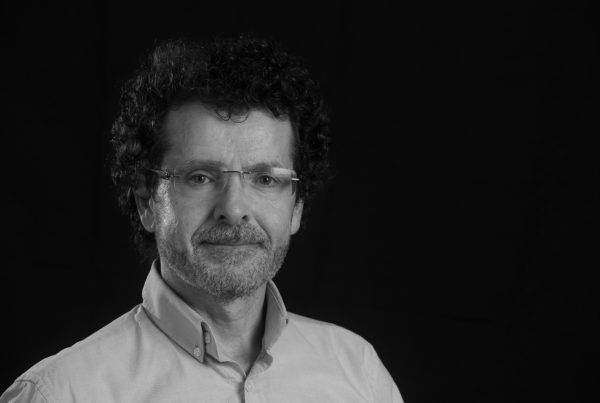In 1983 JG Russo obtained a fellowship to study physics at the Instituto Balseiro, Bariloche, Argentina, where he obtained the degree (Licenciatura) in Physics (12/1986). He was awarded a SISSA fellowship to follow the PhD programme at SISSA, Trieste, Italy, where he finished his PhD (10/1990) under the supervision of Daniele Amati on Quantum gravity and String theory. As a postdoc at Stanford University, USA, he collaborated with Lenny Susskind on black hole physics. He continued his research on black holes and string theory first at the University of Texas at Austin, USA, and then at CERN, Geneva. In 1998 JG Russo moved to the University of Buenos Aires as a Professor and in 04/2003 joined ICREA as a Research Professor.
Research interests
A major challenge of theoretical physics is unveiling the fundamental laws that govern the universe. The microscopic world, governed by quantum mechanics, is fuzzy, uncertain and involves three forces among elementary particles: electromagnetic, weak nuclear and strong nuclear. The gravitational force, described by Einstein general relativity, is instead observed at large scales. But this theory is incompatible with quantum mechanics. Superstring theory is presently the best candidate to reconcile gravity with quantum mechanics and thus to provide a unifying framework for the four forces of nature.
My research interests include Superstring theory, Gravitation, Cosmology and Particle Physics.
Selected publications
- Russo JG & Townsend PK 2024, 'Causal self-dual electrodynamics', Physical review d, 109 - 10 - 105023.
- Russo JG & Townsend PK 2024, 'Dualities of self-dual nonlinear electrodynamics', Journal of high energy physics, 9 -107.
- Russo JG & Tierz M 2024, 'Landau-Zener transition rates of superconducting qubits and the absorption spectrum in quantum dots', Physical review a, 109 - 3 - 033702.
- Russo JG & Townsend PK 2024, 'Born again', Scipost physics, 16 - 5 -124.
- Mezincescu L, Russo JG, Townsend PK 2024, 'Hamiltonian birefringence and Born-Infeld limits', Journal of high energy physics, - 2 - - - 186.
- Russo JG & Townsend PK 2024, 'Causality and energy conditions in nonlinear electrodynamics', Journal of high energy physics, art. no.191.
- Russo JG 2024, 'Probing hidden dimensions via muon lifetime measurements', Physics letters b, 859 - 139098.
Selected research activities
Member of Management Committee of European Project COST (European Cooperation in Science and Technology) "Fundamental Challenges in Theoretical Physics".
Member of Evaluation Panel for Projects for Agencia Estatal de Investigación (AEI).
Member of Evaluation Panel for funding proposals appointed by Fund for Scientific Research (FNRS) Belgium.
Invited seminar "On the new formulation of Self-dual nonlinear Electrodynamics",
University of Athens, 11 Nov 2024.
Invited seminar "Born again", University of Florence, 22 May 2024.
Supervisor of Master Thesis "Shadow curves and quasinormal modes for black holes surrounded by dark matter, radiation and dust", U. Barcelona (28 Jun 2024).
